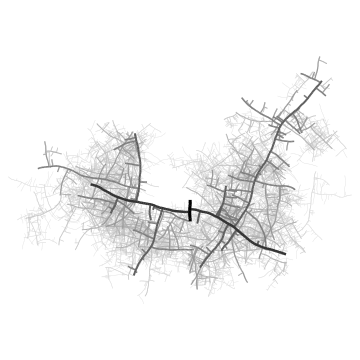If you haven’t seen The Invention Of Lying, watch some of this clip (1 minute long).
If you’re like most people, this will induce a cringe reaction. The things these people are saying, while true, are rude and would ordinarily be interpreted as socially aggressive.
In a world where white lies (and hiding things for the sake of politeness) are normalized, such truth-telling is highly unusual. One automatically suspects the motives of the truth-teller. Maybe the waiter is saying “I’m embarrassed I work here” in order to manipulate the others by garnering pity. Maybe the woman is saying the man is unattractive in order to lower his self-esteem and gain advantage over him.
These interpretations are false in the world of The Invention Of Lying, because everyone talks that way. So, revealing such information does not indicate any special plot going on, it’s just the thing to do.
In our world, revealing such information does (usually) indicate a special plot, because it is so unusual. It’s erratic , and quite possibly dangerous.
Special social plots are usually interpreted as aggressive. It’s as if the game has reached an equilibrium state, and out-of-equilibrium actions are surprise attacks.
Wiio’s law states: “communication usually fails, except by accident”. The equilibrium of the game is for no communication to happen. Breaks in the game allow real communication, something most hope for but rarely find.
If we adopt a frame that says that unusual social plots are actions that are against someone (which is a zero-sum frame), this leads to the conclusion that truth-telling is aggression, as it is necessarily part of an unusual social plot.
Non-zero-sum frames, of course, usually interpret truth-telling positively: it contributes to a shared information commons, which helps just about everyone, with few exceptions. People are often capable of switching to non-zero-sum frames in natural emergency situations, but such situations are rare.
To transition from a zero-sum frame to a non-zero-sum frame, from normalized lying to normalized truth-telling, requires a special social plot involving unusual truth-telling. Because it almost never happens by default.
Such plots are always acts of aggression, when interpreted from within a zero-sum frame. And this concern is not without merit. When lying is built into the system, and so is punishment for actions labeled as “lying”, punishment of an ordinary instance of lying (a likely result of uncareful truth-telling) isn’t part of a functional behavioral control system, it’s a random act of scapegoating.
And so, there is, in practice, a limit on the rate that truth will be told. Because truth-telling uncovers local norm-violations (which are normal), leading to scapegoating. And people who fear this (or, who detect an unusual social plot happening and reflexively oppose it) will coordinate to suppress truth-telling.

I think this is a bit over-simplified (which you’re probably aware of), since there are actually infinitely many truths and untruths what can tell and so the status quo is not simply “everyone lies all the time” but “everyone chooses what they say based on minimizing negative emotions” which is sometimes truth and sometimes lies.
Consider having a conversation about the weather: This is usually a conversation that doesn’t go very far in any interesting directions but does not require any of the participants to go to the cognitive/emotional effort of lying. You can say entirely true things but by choosing the subset of truth that’s largely inoffensive and common-knowledge you can still engage in social-smoothing behavior instead of standoffish silence.
LikeLike